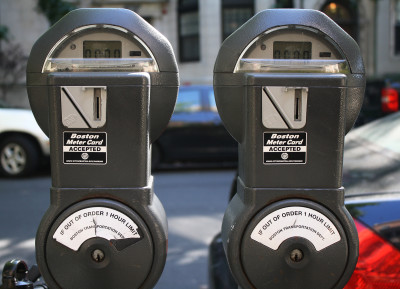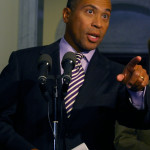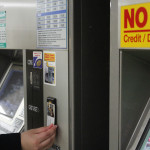 In order to reduce traffic congestion in Boston, parking meter prices may increase in the next year, Boston Mayor Martin Walsh announced Thursday at the Greater Boston Chamber of Commerce breakfast.
In order to reduce traffic congestion in Boston, parking meter prices may increase in the next year, Boston Mayor Martin Walsh announced Thursday at the Greater Boston Chamber of Commerce breakfast.
Parking meters in Boston currently cost $1.25 an hour, three to five times cheaper than in other cities, which Walsh said causes congestion by creating “an incentive to circle the block.” By raising prices, the city aims to reduce the number of cars on street, which would mean less congestion, more safety and less vehicle emissions.
“The bottom line is: $1.25 isn’t working in our busiest area,” he said at the breakfast. “I like offering a good deal, but not at the price of stress and gridlock on our streets. It’s not helping anyone. And we should be looking at any plan to help us change that.”
Walsh said the city will use data from the traffic app Waze and the City initiative GoBoston 2030 in order to better meet residents’ transportation needs.
Parking meter price increases have been successful in San Francisco, Walsh said, where parking now costs $7 an hour and search time for parking spots has gone down by 43 percent. Walsh said similar plans are tentative for Boston, but that does not mean that Boston is “buying their [San Francisco’s] pricing model.”
“This is a plan for a pilot program that we have only just started to explore to see if it works for Boston and $7 an hour has never been on the table,” he said in a Friday press release.
One of the main reasons metering is important, Walsh said, is the upcoming winter season.
“As everyone is saying in Boston these days, winter is coming. And with the MBTA in the news every week, we are all thinking about transportation,” Walsh said. “You’re thinking about how your employees get to work … how your family gets around town. We’ve been thinking about it too. And working on it.”
Charles Rudnick, vice president of communications for the Chamber, said Walsh’s idea is worth consideration.
“We certainly think it’s worth looking at,” he said. “The mayor is a very data-driven mayor. This is a data- and demand-driven initiative where the city wants to take a look at increasing parking rates in areas where there’s high demand both geographically and [at different] times of day.”
Rudnick added, however, that parking issues as a whole are unavoidable in the city.
“I don’t think you can live in Boston and not experience parking issues,” he said. “… the intent of the mayor’s initiative is to relieve congestion, the idea being that by increasing meter rates in certain areas at certain times, you can reduce the number of people looking for parking spots.”
The plans to establish variable metering are in motion, Rudnick said.
“My understanding is that the city is going to conduct an analysis and put together a plan setting the potential impact on certain neighborhoods, and then based on that analysis and that plan, [they will] conduct a pilot program next year,” he said.
Johannes Schmieder, a professor of economics at Boston University’s College of Arts and Sciences, said increasing meter fees could help the flow of traffic in the city.
“This will make parking more expensive in some of the most congested parts of the city. The upside of this could be that it reduces traffic since it will encourage some people to rely on public transportation instead of cars and fewer people will circle to look for parking,” he said. “A reduction in traffic could also in principle lead to improvements in air quality and fewer traffic deaths.”
Schmieder added that the city government should first consider improving its public transportation and bike lanes.
“Compared to [other cities], Boston is not doing all that well as last winter showed, and without improvements on that front making parking more expensive probably won’t solve anything on its own,” he said.
Several residents said that Walsh’s initiative would have a positive effect on the city.
Christine Elliot, 27, of Back Bay, said although she does not park on the street, she has been affected by the traffic that results from cheap metered parking.
“[We] have parking in the back as part of our house, we still have permit parking as a backup,” she said. “It is kind of ridiculous how much traffic there is.”
Mary Quinlan, 60, of Back Bay, said the initiative should be considered.
“[Parking is] a nightmare here, and they should raise it. I believe in raising it, because it would get people in and out,” she said. “It’s too cheap.”
People may be parking on the street to pay for permitted parking, Quinlan said, so they “don’t have to pay $300 a month.”
“I like having a permit, because I’m a resident,” she said, “and I pay tons of taxes to park on the street outside my house.”




